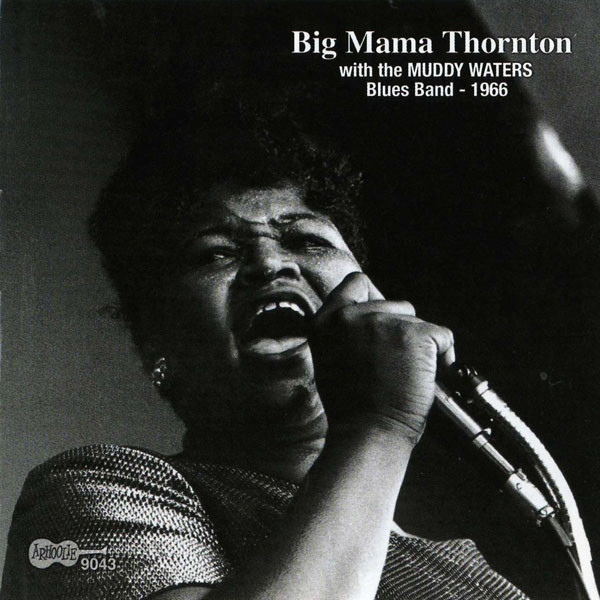
BIG MAMA THORNTON December 11, 1926 – July 25, 1984
RECOMMENDED ALBUMS: BIG MAMA THORNTON IN EURPOE (Arhoolie), BIG MAMA THORNTON AND THE MUDDY WATERS BLUES BAND (Arhoolie), THE ORIGINAL HOUND DOG (Ace Records)
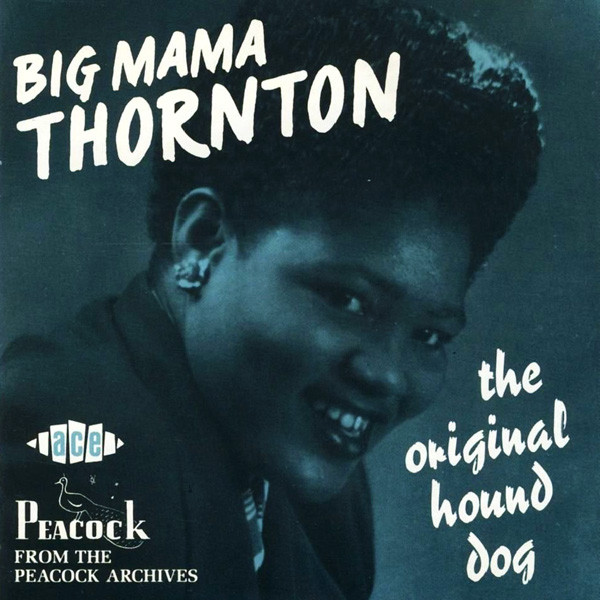
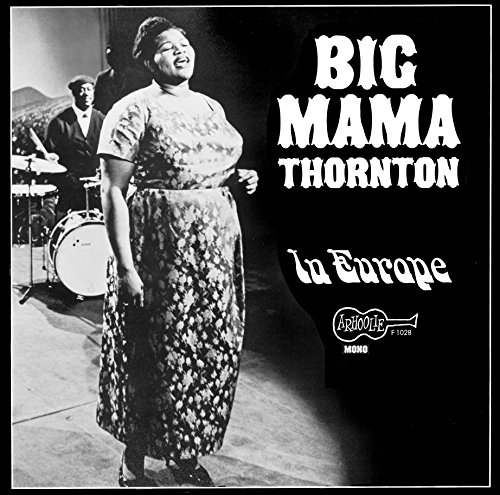
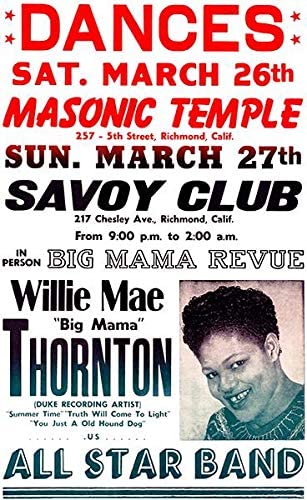
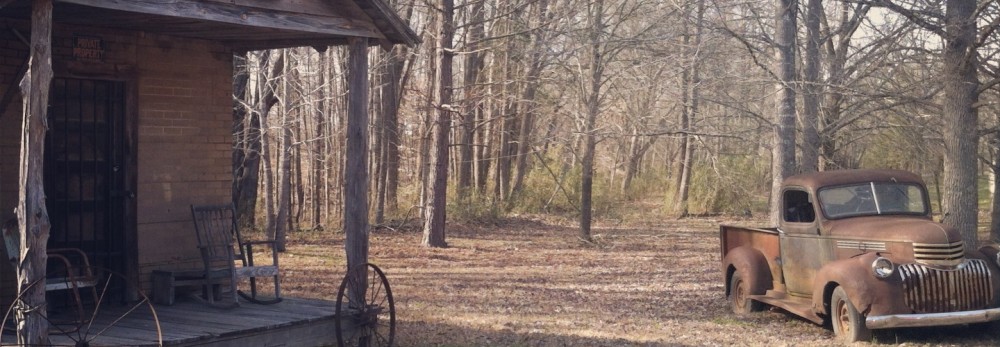

RECOMMENDED ALBUMS: BIG MAMA THORNTON IN EURPOE (Arhoolie), BIG MAMA THORNTON AND THE MUDDY WATERS BLUES BAND (Arhoolie), THE ORIGINAL HOUND DOG (Ace Records)



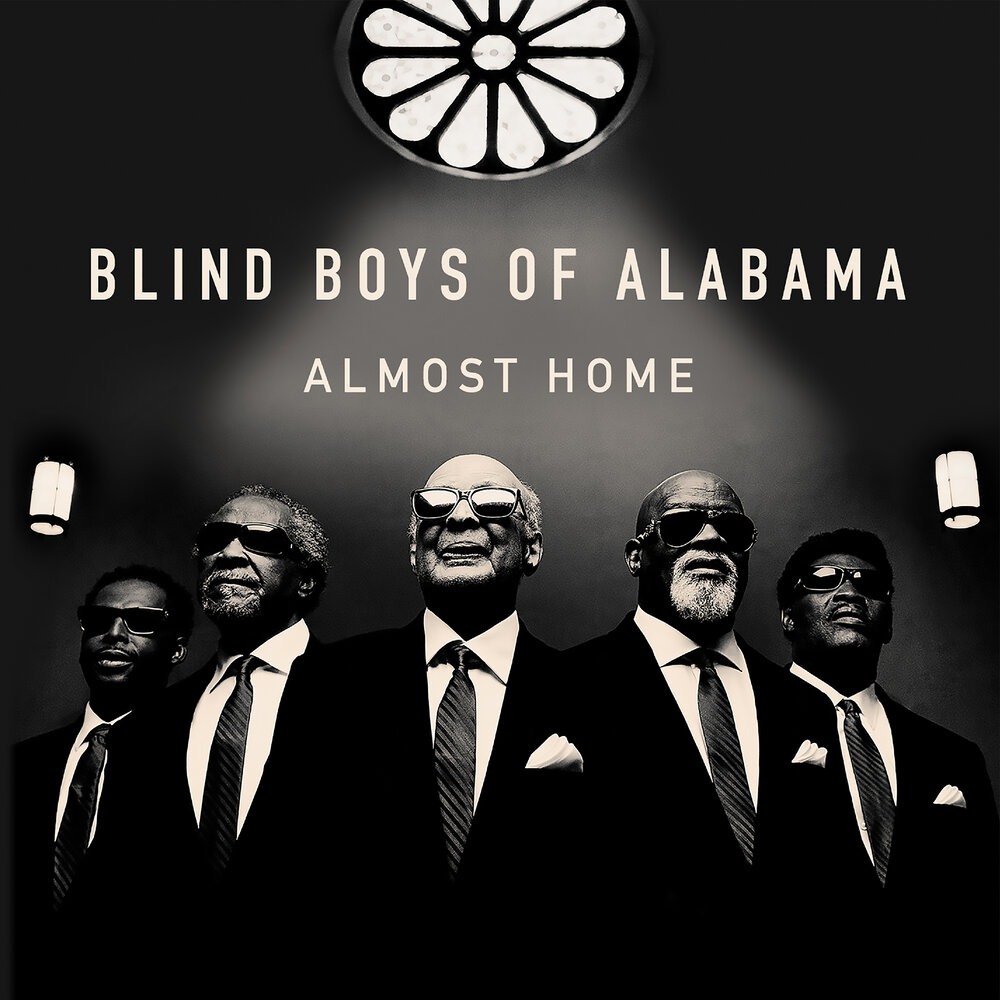
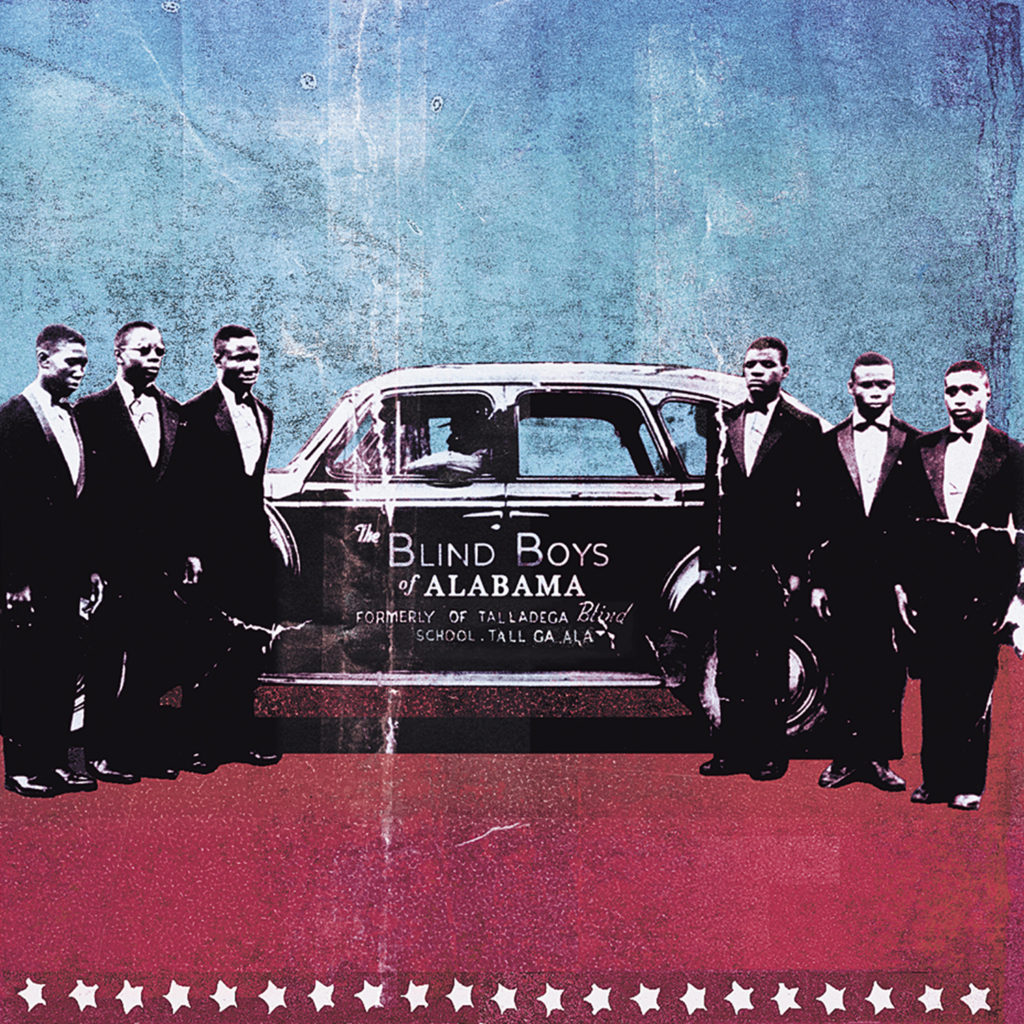
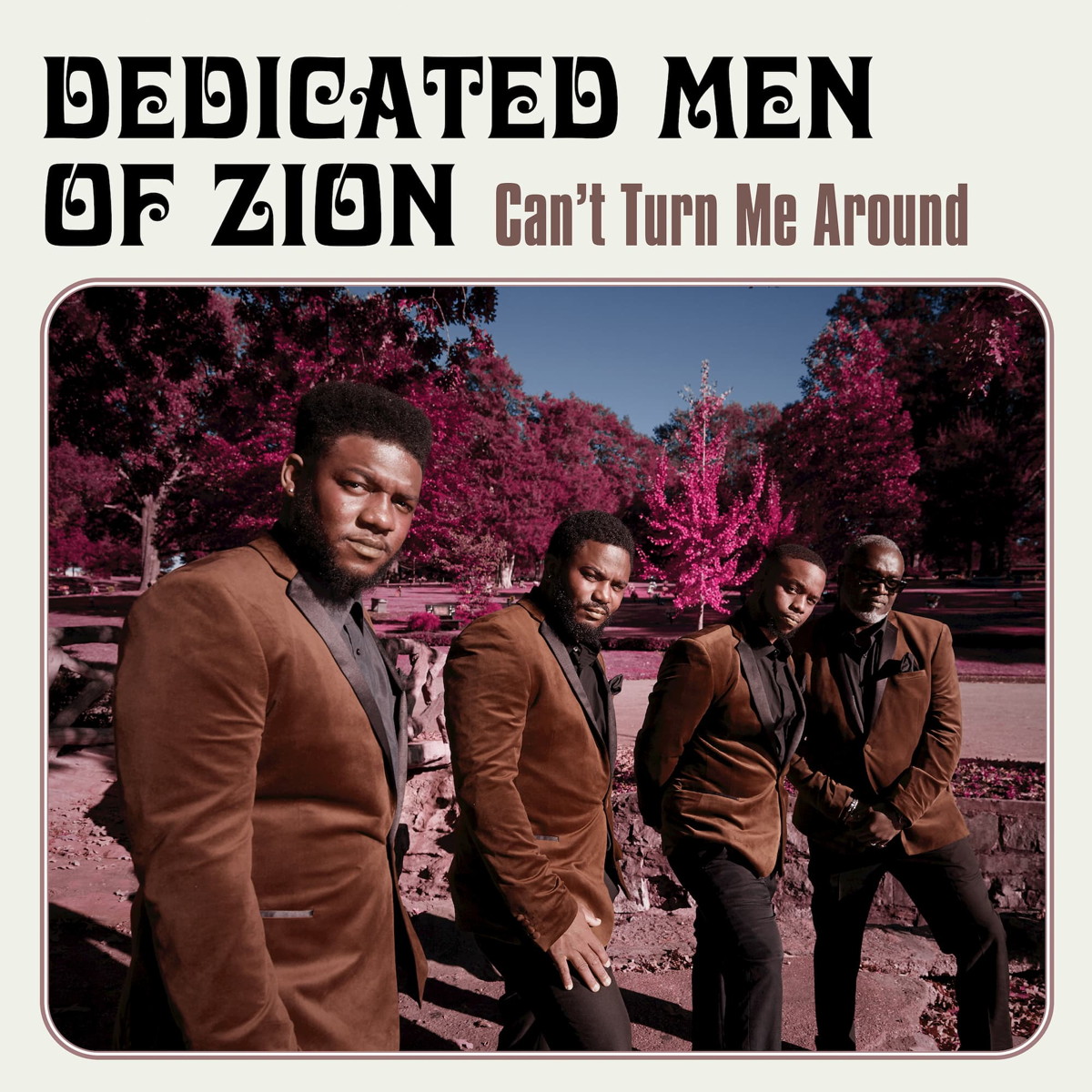
CAN’T TURN ME AROUNDÂ Bible & Tire Records
For fans of Sharon Jones and The Dap Kings, The Blind Boys of Alabama, and The Staple Singers
The new record from the Dedicated Men of Zion reminds us that the lines between traditional gospel and R&B are blurry at best. Filled with foot-stomping rockers and swinging soulful ballads, CAN’T TURN ME AROUND, is just as appropriate for Saturday Night as it is for Sunday morning. Hailing from rural North Carolina the group has gone through a number of lineup changes since it’s incarnation in 2014. In 2018 the group’s current lineup, consisting of Anthony Daniels, Antoine Daniels, Dexter Weaver, and Marcus Sugg caught the attention of The Music Maker Relief Fund. The Music Maker Relief Fund is a non-profit organization that helps musicians in the rural south meet their day-to-day needs and promote their music. Even though the band was already popular regionally, working with the Music Maker Relief fund helped the group reach a larger audience and eventually find the ears of Bruce Watson’s Bible & Tire Record label.
 The bottom line is that The Dedicated Men of Zion’s new record CAN’T TURN ME AROUND is a record that is desperately needed today. It’s inspiring, hopeful, and most of all reminds us that yes, things have been bad before but if we work together we can survive this and make it to the promised land.. whatever you deem that to be.
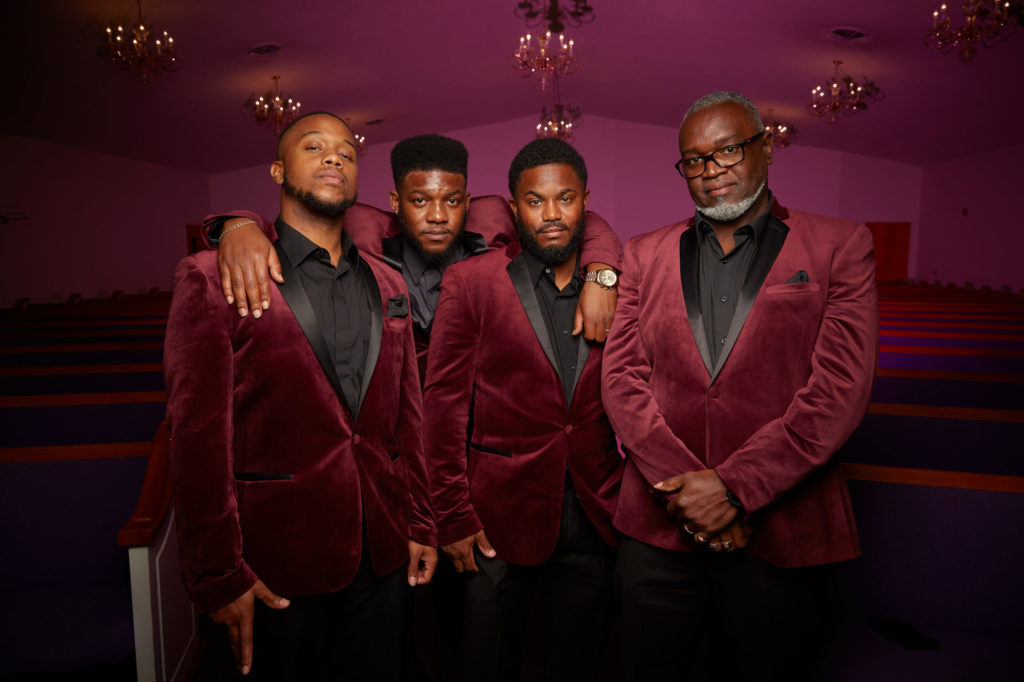
Born in Arkansas in 1915 Sister Rosetta Tharpe influenced Rock and Popular music more then most people know. A young Little Richard got his start by opening for her before anybody knew who he was. Elvis, Johnny Cash, and Bob Dylan all cite Sister Rosetta as a major influence, and during her heyday she performed for stadium sized crowds all over the world. In short, Sister Rosetta was a rockstar before Rock n’ Roll even existed.
Few people were better at discovering musical talent in Louisiana during the 1950’s and 60’s then J.D. Miller and Eddie Shuler. Instrumental in bringing styles such as Zydeco, Cajun, and Swamp Pop to the ears of the world, they each made their mark by recording and producing local unknown talent. Miller recorded the artists he discovered then usually sold the tapes to other record labels while Shuler recorded and released music on his own Goldband label. Now, thanks to the fine people at ACE Records, there are TWO new excellent compilations that focus on the Blues recordings produced by Miller and Shuler.
Part of ACE’s “By The Bayou” series, these discs, entitled Bluesin’ By The Bayou and Bluesin’ By The Bayou: Rough & Tough, are both supreme examples of the Louisiana Blues scene during the 50’s and 60’s. Sometimes known as “Swamp Blues” the music on these recordings is a mix of down-home Country Blues with a few touches of R&B, Zydeco, and Cajun Music thrown in for good measure. These recordings are essential for any Blues or Roots Music fan’s record collection. This is as greasy as it gets!
Some of the artists featured on Bluesin’ On The Bayou
SLIM HARPO
Born in Baton Rouge, Louisiana, Slim Harpo was one of the most successful and best known of all Swamp Blues artists. His songs “I’m A King Bee” (1957) and “Shake Your Hips” (1961) were both covered by The Rolling Stones and he had a number one hit in 1966 with “Baby Scratch My Back”. Included on Bluesin’ By The Bayou: Rough and Tough are his single “My Little Queen Bee”, an answer to his first hit “King Bee”, and a cover of Lonesome Sundown’s “Bought Me A Ticket”
LONESOME SUNDOWN
Lonesome Sundown was born Cornelius Green in 1931 on a plantation in Donaldsville, Louisiana. Well versed in a variety of musical styles, Lonesome Sundown’s music ranged from down-home Blues to Country to Roll-licking R&B. He was never a household name but nevertheless was responsible for some of the most exciting music to come out of Louisiana in the 50’s and 60’s. Included on Bluesin’ By The Bayou: Rough and Tough are romping versions of his songs “I’m Gonna Stick To You Baby” and “If Anybody Asks You”. Both songs are essential listening for any Blues fan.
LIGHTNIN’ SLIM
One of the most important and influential bluesmen to ever come out of Louisiana, Lightnin’ Slim was actually born in St. Louis, Missouri. He moved to Louisiana when he was a teenager and soon picked up the guitar and began playing in clubs. In 1954 he recorded “Bad Luck Blues” with J.D. Miller and regularly performed with fellow Louisiana bluesmen Lonesome Sundown, Lazy Lester, and Slim Harpo. Included here in this collection is his song “Trip To Chicago” which talks about the groups “adventure” to play a gig in the Windy City! Fellow Louisiana bluesman Buddy Guy credits Lightnin’ Slim as one of his biggest influences.
LAZY LESTER
A talented multi-instrumentalist, Lazy Lester performed on many recordings produced by J.D. Miller as both a front-man and backup musician. His first major his was the his 1958 release “I’m A Lover Not A Fighter”. Originally written by J.D. Miller, this song put Lester on the map and was coupled with the b-side “Sugar Coated Love”. Still an excellent performer to this day, he still tours nationally and is a favorite at Blues festivals. He was inducted into the Blues Hall Of Fame in 2012. UPDATE 2018: Sadly Lester passed away on August 28, 2018. He was 85
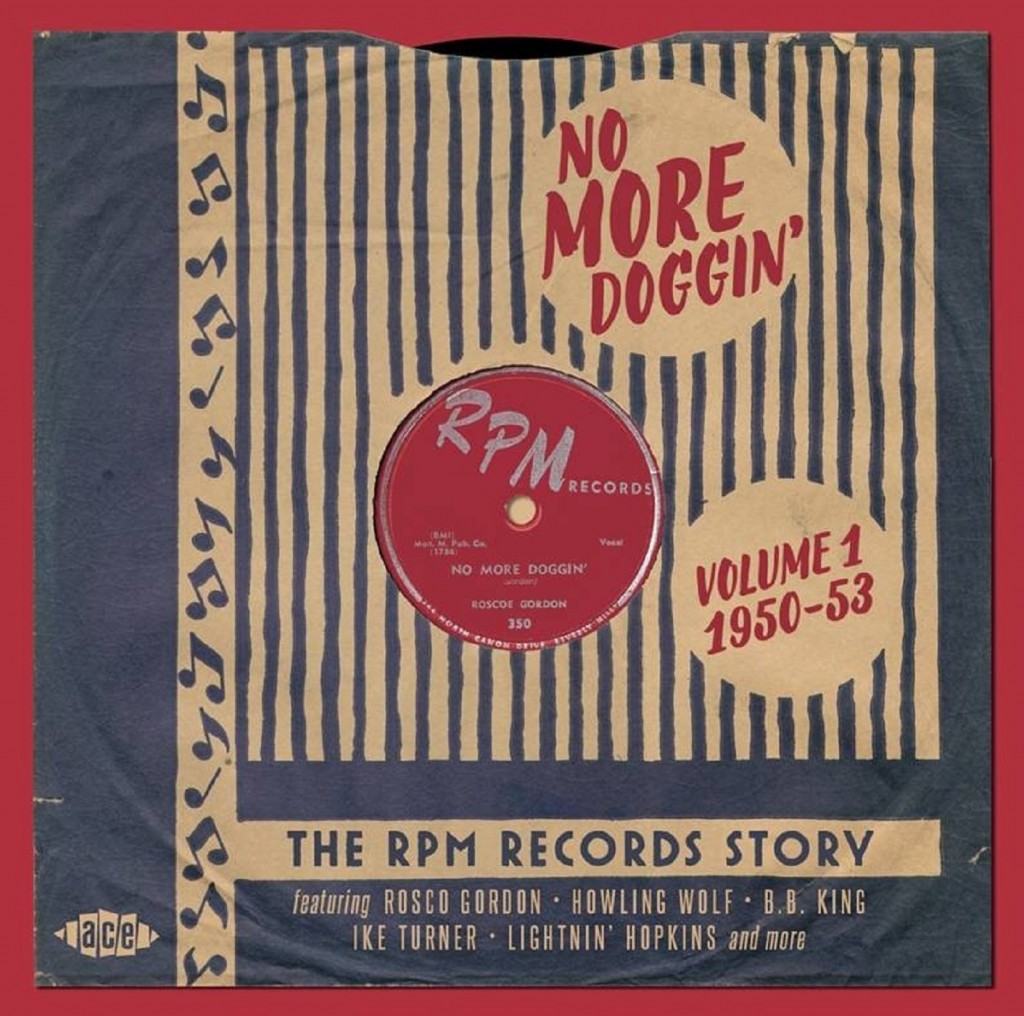 Full of Jump Blues, early R&B, and down-home Country Blues, the double-disc collection No More Doggin’ The RPM Records Story Vol. 1 might be one of the best introductions to early 50’s blues ever. Compiled by the good folks at ACE Records, this collection covers the early years of RPM Records and features well know artists like B.B. King, Howlin’ Wolf, and Lightnin’ Hopkins.
Full of Jump Blues, early R&B, and down-home Country Blues, the double-disc collection No More Doggin’ The RPM Records Story Vol. 1 might be one of the best introductions to early 50’s blues ever. Compiled by the good folks at ACE Records, this collection covers the early years of RPM Records and features well know artists like B.B. King, Howlin’ Wolf, and Lightnin’ Hopkins.
Started in 1950 by the Bihari Brothers, RPM was meant to be a subsidiary of the Bihari’s very popular label Modern Records. After initially having lots of success with Modern, the Bihari’s began having trouble getting their records played on the radio due to stations not wanting to play too many sides from any one label. So in order to get their product on the airwaves the Bihari’s started a number of subsidiary labels. Probably the most popular of Modern’s subsidiary labels, RPM introduced the world to a Memphis radio DJ by the name of Riley B. King. Eventually known as “B.B. King”, Riley came to the attention of the Bihari Brothers thanks to their working relationship with Memphis talent scout/producer Sam Phillips. Phillips at the time was recording local artists with his Memphis Recording Service then sending the masters to labels like Modern and Chess. Trough their relationship with Phillips, the Bihari’s got hooked up with some of the best talent in Memphis. Unfortunately their relationship ended when Phillips and the Bihari’s had a disagreement over a B.B. King session and went their separate ways. Fed up with feeding product he recorded to other labels, Phillips then decided to start his own label, Sun Records. As for Modern/RPM, even without the help of Phillips the label still went on to produce many more hits, including B.B. King’s breakthrough hit record Three O’Clock Blues.
No More Doggin’ The RPM Records Story Vol. 1 starts off with the Dixieland-style track “Alabama Bound”. Sung by Adele Francis, this tune was RPM’s first release in 1950. Other stand out tracks are Sonny Blair’s down-and-out blues ballad “Glad To Be Back Home”, B.B. King’s “Other Night Blues, and Howlin’ Wolf’s “Riding In The Moonlight”. My personal favorite recordings on this collection are the Lightnin’ Hopkins tracks. Excellent versions of “Bad Luck and Trouble” and “Another Fool In Town” showcase Hopkins at his bluesy best, while “Jake Head Boogie” shows that he also could ROCK when he wanted to. Another nice surprise on this collection is the tune “It’s Time For Lovin’ To Be Done”. Performed by Detroit Bluesman Little Eddie Kirkland, the song features uncredited backing vocals by the great John Lee Hooker!
As usual the folks at ACE left no stone unturned when putting this collection together. Included in this collection is a nice history of RMP records as well as a few words on all the performers. All of the albums 52 tracks sound crisp and clear thanks to the extra care shown by the folks who did the remastering. If you want to hear where Rock N’ Roll really began this collection is for you.
Mavis Staples is a living legend. Over the past 60 years she’s not only brought Gospel music to the masses but she’s also been a voice of hope and strength for those fighting for Civil Rights. Her career started in Chicago during the late 1940’s when she and her siblings would perform in churches alongside their father, the legendary Roebuck “Pops†Staples. With a sound that was rooted in Southern Gospel and Delta Blues “The Staple Singers†soon became local favorites and in the early 50′s began recording sides for labels like VeeJay, Riverside, and Checker. In addition to gospel music fans the band was also embraced by the folk music scene during the folk revival of late 50′s and early 60′s. It was during this time that the band became very active in the civil rights movement and regularly performed at rallies and events hosted by Dr. Martin Luther King.
In the late 60′s and early 70′s the music scene was changing and the band changed right along with it. They signed with the legendary STAX Records and under the guidance of STAX A&R man Al Bell they started adopting more of a Soul-Gospel style. Their music might have become a little funkier but it still contained the same message of hope, love and compassion. Songs like “Respect Yourself“, and “I’ll Take You There†made the band a household name and catapulted them into stardom. Unfortunately, due to some questionable business decisions by Al Bell STAX Records filed for bankruptcy in 1975 and was forced to shutdown.
The Staples pressed on and over the next several years put out several releases for a variety of different labels. While they had success with their 1975 album LET’S DO IT AGAIN the group mostly was out of the spotlight until the 1990’s. During the 2000’s Mavis continued to perform and release solo albums. Paired with producers such as Ry Cooder and Wilco’s Jeff Tweedy, these records introduced Mavis to a whole new audience. In 2013 her Jeff Tweedy-produced album You Are Not Alone won a Grammy for “Best Americana Album”.
This year Mavis will turn 75 years young and she’s just as popular as ever. People all over the world still cram into venues to see her perform and she’s a regular musical guest on late-nite TV. Her music still carries with it a message of hope and tolerance. A message that reminds us that even though there have been victories in the struggle for civil rights, the fight is far from over.
STAPLE SINGERS/MAVIS STAPLES SUGGESTED LISTENING
The Staple Singers: Uncloudy Day (VeeJay)
The Staple Singers: Freedom Highway (Epic/Legacy)
The Staple Singers: Be Attitude: Respect Yourself (Stax)
The Staple Singers: The Staple Swingers (Stax)
The Staple Singers: The Best of The Staple Singers (Stax)
Mavis Staples: We’ll Never Turn Back (Anti) produced by Ry Cooder
Mavis Staples: You Are Not Alone (Anti) produced by Jeff Tweedy
Mavis Staples: One True Vine (Anti) produced by Jeff Tweedy
Leo “Bud” Welch: SABOUGLA VOICE Big Legal Mess/Fat Possum
For Fans of: Junior Kimbrough, R.L. Burnside, The White Stripes, Rev Louis Overstreet
Guitarist Leo “Bud” Welch was born in Sabougla, Mississippi in 1932. A natural musician, Leo taught himself to play the guitar by learning songs off the radio. As soon as he built up a small repertoire he began performing at parties and local juke-joints. Unfortunately work as a musician was inconsistent and even though he was incredibility talented he was unable to make a living playing music. In order to make ends-meet Leo ended up taking a job as a logger and had to resort to playing music only when he had free time. Then in 1975 Leo switched from playing Blues to playing Gospel. He started performing in churches all over Mississippi and even began hosting a local Gospel Television show. Even though he now considered himself a Gospel musician he still kept in touch with the local Blues scene. As time went on he heard that Blues musicians like Junior Kimbrough were having late-in-life success working with Fat Possum Records. Inspired by this he called up the label and requested an audition. Label owner Bruce Watson agreed to hear Leo play and ended up signing him on the spot. Now thanks to the good people at Fat Possum and Big Legal Mess Records the world finally gets to hear one of the treasures of Mississippi, guitarist Leo Welch.
The album is called Sabougla Voices and the music on it is honest no-frills Mississippi Gospel. Throughout the albums ten tracks Leo’s plays the guitar with the energy of someone half his age. Songs like “Praise His Name” and “You Can’t Hurry God” are upbeat and show us the lines between Blues and Gospel are blurry at best. In fact, if you were to change a few lyrics, these songs could easily be for Saturday night instead of Sunday morning. Another standout track on the record is the acoustic “Me and My Lord”. Sounding a little like Pops Staples, Leo does call and response with his backup singers while playing acoustic guitar. This song is given an extra push by Leo’s backing band which shows it’s professionalism by settling into a nice groove and not over playing.
Even though all of the music on Sabougla Voices is solid, the album’s strongest track is easily the slow and eerie blues tune “A Long Journey”. Beautifully recorded, this song is about accepting the fact that death is part of life. That being said, hopefully Leo will be still be around for a long time as he deserves to enjoy every minute of his new found success! He’s got gigs booked across the U.S. this summer and is even scheduled to perform in Europe! Not bad for someone that at one point had to turn down an audition with B.B. King because he couldn’t afford to travel to Memphis. This album is excellent and belongs in your collection.
FEVER: Little Willie John’s Fast Life, Mysterious Death, and the Birth of SoulÂ
Author: Susan Whitall Publisher: Titan Books
Armed with a lion-like voice and sparkling personality Little Willie John was one of the most popular entertainers during the 1950’s and 60’s. Songs like “All Around The World”, “Fever”, and “Talk To Me” all made it to the top of the R&B charts and became the blueprint for what would later be called “Soul Music”. He consistently filled concert halls throughout his career always delivering an electric stage show that left audiences wanting more. On the road more often then not Willie lived his life fast and hard. He regularly stayed out until the wee-hours of the morning drinking and socializing. One night after a show in Seattle, Washington while he was drinking at an after-hours club Willie was involved in an altercation that ended with him stabbing a man. Willie ended up being charged with manslaughter and was sent away to the Washington State Penitentiary where he died on May 26 1968 at the age of 30. Although the cause of his death is listed as “Heart Attack”, there are questions about the care he was given while incarcerated. However it happened, it’s a sad but true fact that Little Willie John left this world too soon.
In her book FEVER: Little Willie John, A Fast Life, Mysterious Death, and the Birth of Soul, author Susan Whitall gives us a detailed and in-dept look at the life of one of music’s greatest voices. Written with the help of Willie John’s son Kevin and filled with interviews from those who knew Willie John this book is essential for anyone interested in the history of Soul music.
Essential listening Little Willie John: Complete Hit Single’s A’s & B’s
Â
A few years ago while I was doing a blues gig in San Francisco and I got into a conversation with another musician about great Blues guitar players.  “It’s a shame there aren’t any great blues players left” he said.  “That’s not true” I replied, “B.B. is still around and of course you have Buddy Guy”.  The musician gave me a strange look and said “What?! Why do you like Buddy Guy?  I saw him once and he just played a bunch of Hendrix riffs”.  All I could do at that point was chuckle and reply, “Yeah, well where do you think Hendrix, got some of those ideas from?  Jimi was a student of the Blues and listened to all the blues records he could get his hands on. The guitar player on many of these records was Buddy Guy. ”
Buddy Guy’s guitar playing has inspired guitar players in every genre of music for over fifty years. Always an exciting live act, Buddy has taken his exciting brand of electric blues all all over the world. He’s shared the stage with blues legends like Muddy Waters and rockers like The Rolling Stones. He’s headlined countless festivals, performed on television and even performed for Presidents and royalty. That being said his impressive career isn’t limited just to the stage. During the 1960’s Buddy was an in-demand studio musician for Chess records and played lead guitar on many hits by the likes of Muddy Waters, Howlin’ Wolf, and Koko Taylor. In short, Buddy Guy has lived enough in his 76 years of life to count for three lifetimes.
In “When I Left Home” Buddy (with help from David Ritz) takes us from the farm he grew up on in Louisiana to the streets of Chicago.  A master storyteller, Buddy doesn’t hold back when talking about the ups and downs of life as a blues man. With a mother in need of extra medical attention after suffering a stroke, he left Louisiana for Chicago in search work that would able him to not only support himself but also send money back home to Louisiana. Already proficient on guitar from playing around clubs in Louisiana, Buddy worked himself into the Chicago scene with the help of some local blues fans and eventually with help from the great Muddy Waters. One would think that this would be the ending of our story, but this is only the beginning. Over the next several years Buddy works hard to establish himself as one of the premier Blues guitar players on the Chicago scene. Working as a tow-truck driver in the day, playing clubs and doing recording sessions at night he found himself working night and day to make his dream happen and take care of his family. “When I Left Home” is the no-nonsense story of George “Buddy” Guy, and like it’s author, this story is THE REAL DEAL.
Not familiar with the music of Buddy Guy? Here are some albums I think you might enjoy. There are also many single recordings featuring Buddy, more information on these recordings and the albums listed below can be found in the back of the book “When I Left Home”.
Artist/Album
BUDDY GUY ALBUMS
“Buddy’s Blues” (Best of his Chess recordings)
“A Man and The Blues”
“Buddy and The Junior’s” (Buddy Guy with Junior Wells and Junior Mance)
“Damn Right I Got The Blues”
“Sweet Tea”
“Blues Singer”
“Can’t Quit The Blues” (Box Set)
RECORDS FEATURING BUDDY GUY
JUNIOR WELLS “Hoodoo Man Blues”
MUDDY WATERS “Folk Singer”